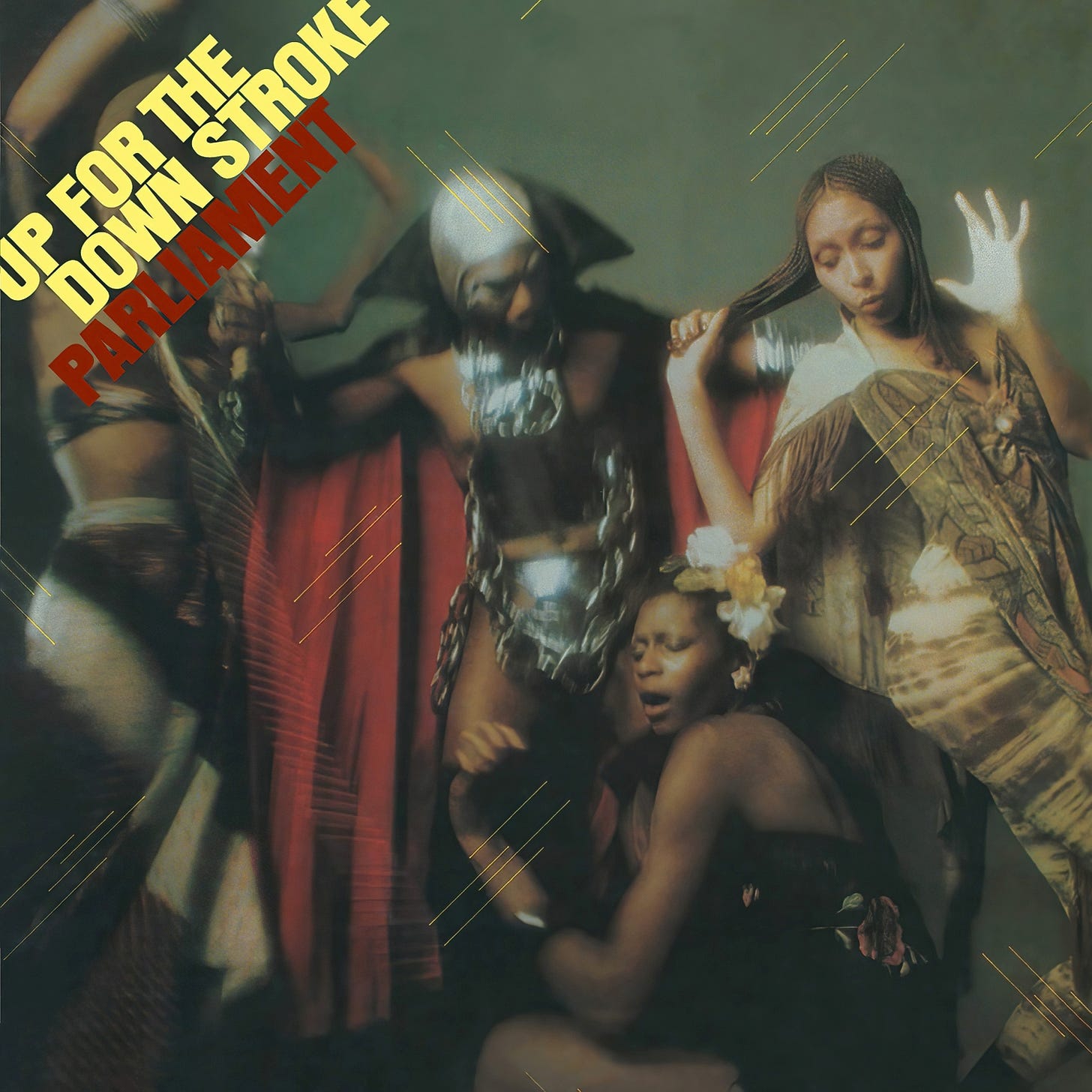Anniversaries: Up for the Down Stroke by Parliament
We’re celebrating the fiftieth anniversary of Parliament’s ‘Up for the Down Stroke.'
George Clinton’s journey to the pinnacle of the funk genre was a rocky path, filled with missed opportunities and the grind of building a career in the music industry. It began in 1955 with The Parliaments, a doo-wop ensemble he founded, performing at the local gigs. His first single, in 1958, did not make waves, and a shot at Motown in 1962 ended in rejection. A glimmer of hope appeared when he was taken on as a songwriter by Motown’s founder, Berry Gordy, but it even fizzled out when Gordy’s marriage dissolved.
Luck intervened when The Jackson 5 and Diana Ross recorded some of Clinton’s songs and produced music for other artists in Detroit. By the mid-60s, Clinton was juggling work at a barbershop with weekend performances in Detroit, where The Parliaments, now expanded with a rhythm section, were making a name for themselves. The summer of 1967 saw their first hit with “(I Wanna) Testify,” which launched them into the limelight, headlining at The Apollo Theater, and touring with notable rock acts.
Trouble loomed again in the late 60s when a dispute with their label Revilot led Clinton to lose the rights to the Parliament’s name. This setback gave birth to Funkadelic and an experimental period with psychedelic music influenced by the likes of Sgt. Pepper. Signing with Westbound Records in 1968, Funkadelic evolved beyond their R&B and doo-wop origins.
By 1974, Funkadelic had gathered a dedicated R&B following and a niche rock audience. The 1971 album Maggot Brain was a critical high point, hailed as a benchmark of the era. As Clinton reclaimed the Parliament’s name, he steered the band in a direction that was more accessible to mainstream audiences. The album Up for the Down Stroke marked this transition, ditching long guitar solos for tighter compositions to keep the funk intact. Parliament’s 70s output transformed funk from mere party music into a genre that was both celebratory and innovative, forever changing the sound of funk.
The 1974 album’s namesake track epitomized the fresh Parliament vibe: a groovy, mid-tempo blend of disco-funk propelled by robust horn riffs (likely the handiwork of Fred Wesley, Maceo Parker, and the Horny Horns, despite the lack of official recognition) and a catchy, intricately layered vocal harmony. The addition of bassist William “Bootsy” Collins, with his fluid and murky basslines, brought a singular texture to the music, setting it apart from even the contemporaneous Funkadelic offerings like “Let’s Take It to the Stage.” The creative triumvirate of Clinton, Collins, and keyboardist Bernie Worrell crafted the bulk of P-Funk’s most memorable anthems of the latter half of the ‘70s, with Up for the Down Stroke serving as their call to the masses to join their funk revolution.
The record featured a few reimagined Parliament classics, such as the sinuous rendition of “(I Wanna) Testify,” which stood out from the original with its thunderous drums, Worrell’s cunning use of the clavinet, and a vibrant disco horn section. “All Your Goodies Are Gone” was adorned with dreamy vocal harmonies, a midnight blues piano vibe, and Tiki Fullwood’s masterful drumming. These songs, along with the beautiful “Whatever Makes My Baby Feel Good” (highlighted by Eddie Hazel’s signature sharp guitar licks), had the potential to be at home on Funkadelic’s earlier albums. While Up for the Down Stroke may have slightly adhered to the familiar P-Funk formula, the albums that followed would fully embrace this novel musical direction.


